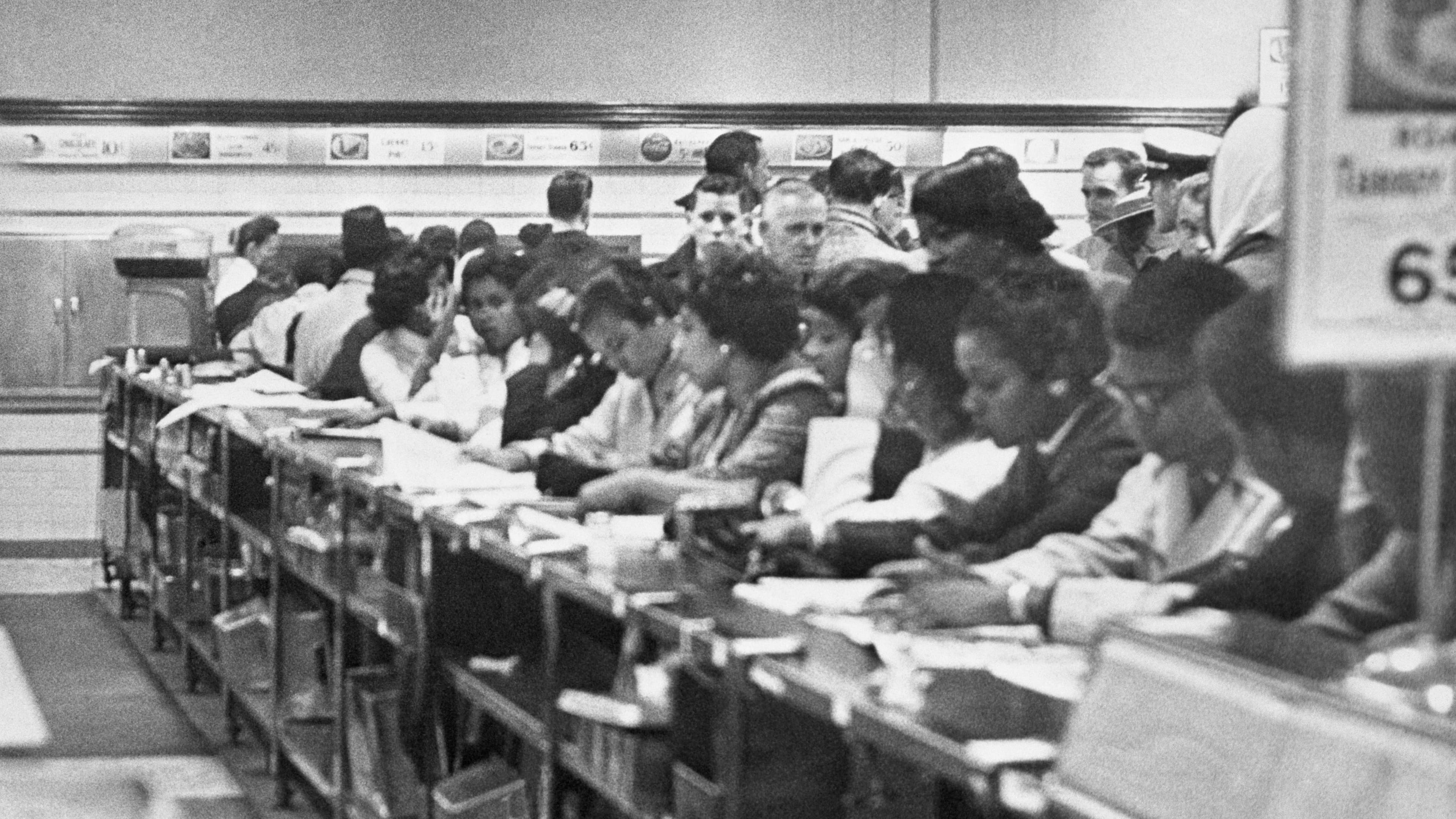On February 1, 1960, in Greensboro, North Carolina, four Black college students spark a nationwide civil rights movement by refusing to leave a “whites-only” lunch counter at a popular retail store after they are denied service. The North Carolina Agricultural and Technical State students—Ezell Blair Jr., Franklin McCain, Joseph McNeil and David Richmond—become known as the “Greensboro Four.”
The students sat at the Woolworth counter until the store closed, promising they would be back the next day. By the end of the first week, 200 protested at the store.
The demonstration in Greensboro continued for six months, until Woolworth gave in and integrated the lunch counter.
Although not the first sit-in, the non-violent Greensboro protest became the best known. Local television provided extensive coverage, and in subsequent days, similar sit-ins occurred in more than 30 other cities.
The initial protest was a result of extensive planning by the students, who received guidance from mentor activists and others.
In 2002, a monument to the “Greensboro Four” was dedicated at North Carolina A&T. The Woolworth’s store, which closed in 1993, became home to the International Civil Rights Center & Museum.
